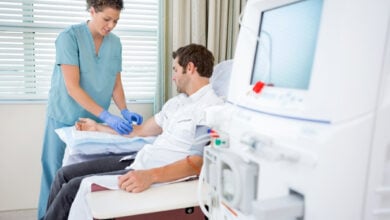Healthcare System
September 2, 2025
Advantages of Istanbul for International Patients
Simple truth, people come to Istanbul for care because it brings three things together: quality, access, and value. Skilled teams, modern hospitals, and one of the best connected airports in the world make planning and follow up…
Healthcare System
September 2, 2025
International Health Insurance
Straightforward talk first. If you are visiting Istanbul for travel or treatment, have health insurance that works in Türkiye. Private hospitals usually offer fast access and English-speaking staff, but they may ask for upfront payment unless your…
Healthcare System
September 2, 2025
Medical Malpractice and Liability Laws
Plain talk first. Medical care involves risk. Most outcomes are good. Some are not. When harm happens because care fell below accepted standards, it may be medical malpractice. This article explains how malpractice works in Türkiye, what…
Healthcare System
September 1, 2025
Medical Tourism Stats
Istanbul sits at the heart of medical travel in Turkey. The country welcomed about 1.5 million international health visitors in 2024, generating just over $3.0 billion in health tourism revenue. In the second quarter of 2025 alone,…
Healthcare System
September 1, 2025
Healthcare in Istanbul
Istanbul is one of the best places in the world for healthcare and medical treatment. If you’re searching for a place to receive treatment, Turkey may appeal to you due to a variety of factors. Here are…
Dental Hospitals & Clinics
January 7, 2025
MediAlkent Dental Clinic
Discover top-tier dental care in Istanbul at Medialkent Dental Clinic. Expert treatments, advanced technology, and budget-friendly options create your dream smile in a world-class setting.
Dental Hospitals & Clinics
January 6, 2025
Uzmanlar Dental Clinic
xperience top-quality dental care at Uzmanlar Dental Clinic in Istanbul. With over 30 years of expertise, modern facilities, and expert dentists, we ensure your smile shines brighter.
Medical Aesthetic Centers
December 23, 2024
MediAlkent Aesthetic Clinic
Find answers to your health questions in Istanbul Medialkent Clinic. Get the best rates from the best surgeons, doctors, and medical staff; top health packages from botox to hair transplant. Top Istanbul doctors are waiting for you!
Medical Aesthetic Centers
December 21, 2023
TrustMed Clinic
TrustMed Clinic – Excellence in transformative health and beauty. Explore personalized services, qualified doctors, and seamless travel experiences.
Medical Aesthetic Centers
September 20, 2023
Acıbadem Beauty Center
Discover Acıbadem Beauty Center: Where healthcare meets beauty with international standards in Istanbul.





